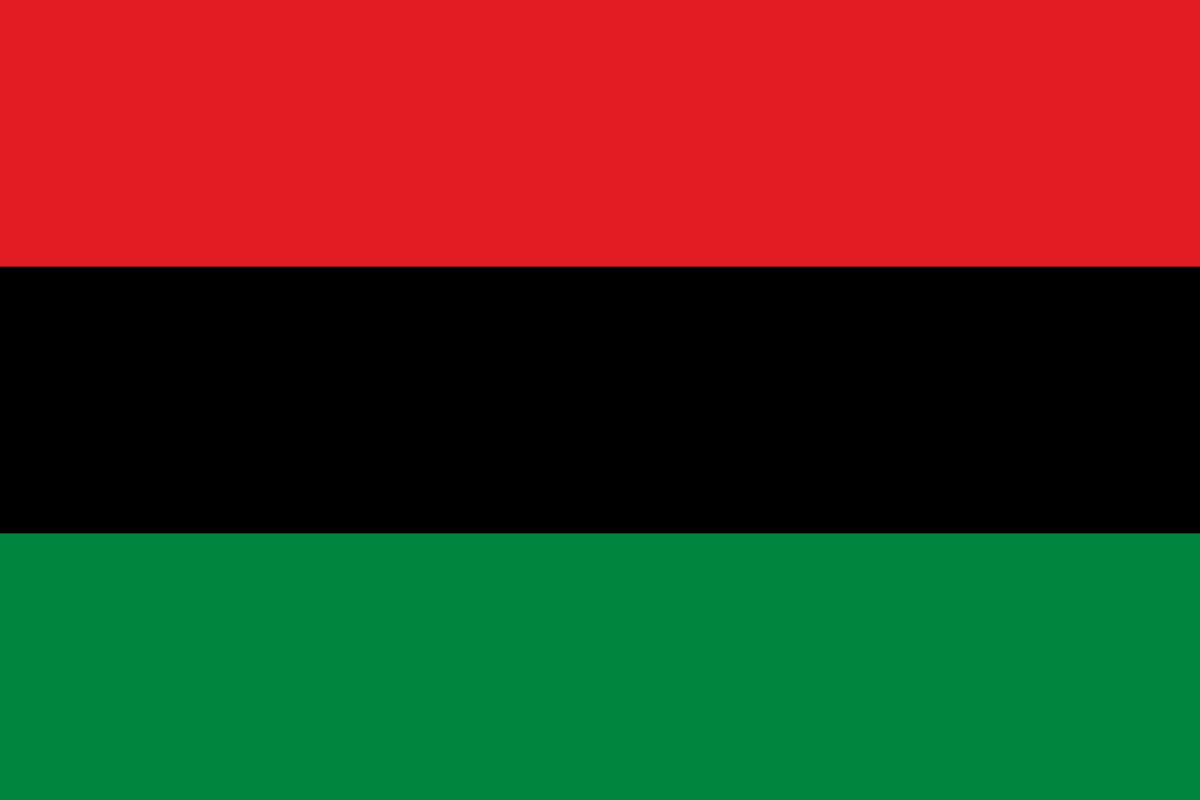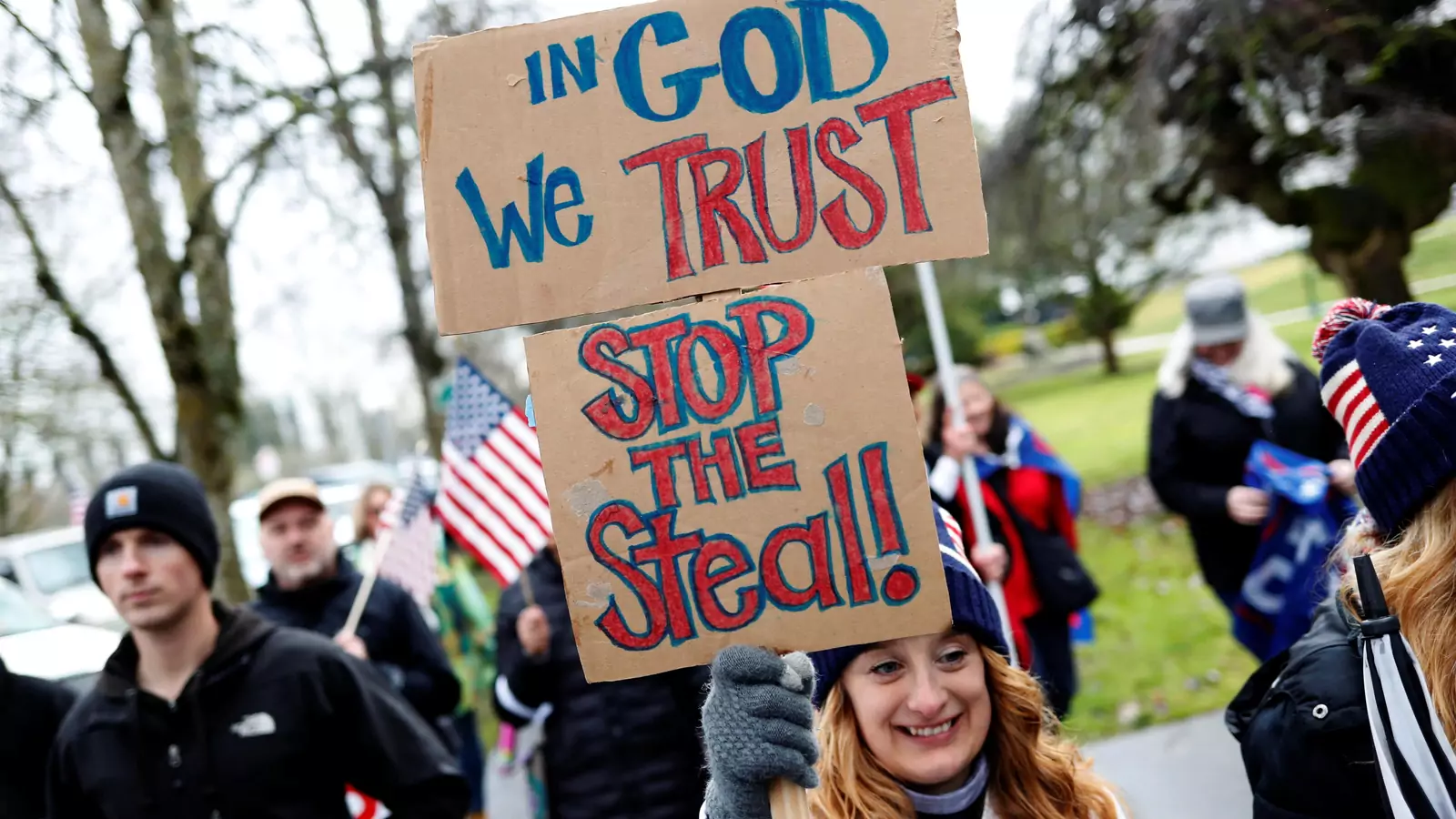What is Christian nationalism?
Christian nationalism is the belief that the American nation is defined by Christianity, and that the government should take active steps to keep it that way. Popularly, Christian nationalists assert that America is and must remain a “Christian nation”—not merely as an observation about American history, but as a prescriptive program for what America must continue to be in the future. Scholars like Samuel Huntington have made a similar argument: that America is defined by its “Anglo-Protestant” past and that we will lose our identity and our freedom if we do not preserve our cultural inheritance.
Christian nationalists do not reject the First Amendment and do not advocate for theocracy, but they do believe that Christianity should enjoy a privileged position in the public square. The term “Christian nationalism,” is relatively new, and its advocates generally do not use it of themselves, but it accurately describes American nationalists who believe American identity is inextricable from Christianity.
What is the problem with nationalism?
Humanity is not easily divisible into mutually distinct cultural units. Cultures overlap and their borders are fuzzy. Since cultural units are fuzzy, they make a poor fit as the foundation for political order. Cultural identities are fluid and hard to draw boundaries around, but political boundaries are hard and semipermanent. Attempting to found political legitimacy on cultural likeness means political order will constantly be in danger of being felt as illegitimate by some group or other. Cultural pluralism is essentially inevitable in every nation.
Is that really a problem, or just an abstract worry?
It is a serious problem. When nationalists go about constructing their nation, they have to define who is, and who is not, part of the nation. But there are always dissidents and minorities who do not or cannot conform to the nationalists’ preferred cultural template. In the absence of moral authority, nationalists can only establish themselves by force. Scholars are almost unanimous that nationalist governments tend to become authoritarian and oppressive in practice. For example, in past generations, to the extent that the United States had a quasi-established official religion of Protestantism, it did not respect true religious freedom. Worse, the United States and many individual states used Christianity as a prop to support slavery and segregation.
What do Christian nationalists want that is different from normal Christian engagement in politics?
Christian nationalists want to define America as a Christian nation and they want the government to promote a specific cultural template as the official culture of the country. Some have advocated for an amendment to the Constitution to recognize America’s Christian heritage, others to reinstitute prayer in public schools. Some work to enshrine a Christian nationalist interpretation of American history in school curricula, including that America has a special relationship with God or has been “chosen” by him to carry out a special mission on earth. Others advocate for immigration restrictions specifically to prevent a change to American religious and ethnic demographics or a change to American culture. Some want to empower the government to take stronger action to circumscribe immoral behavior.
Some—again, like the scholar Samuel Huntington—have argued that the United States government must defend and enshrine its predominant “Anglo-Protestant” culture to ensure the survival of American democracy. And sometimes Christian nationalism is most evident not in its political agenda, but in the sort of attitude with which it is held: an unstated presumption that Christians are entitled to primacy of place in the public square because they are heirs of the true or essential heritage of American culture, that Christians have a presumptive right to define the meaning of the American experiment because they see themselves as America’s architects, first citizens, and guardians.
How is this dangerous for America?
Christian nationalism tends to treat other Americans as second-class citizens. If it were fully implemented, it would not respect the full religious liberty of all Americans. Empowering the state through “morals legislation” to regulate conduct always carries the risk of overreaching, setting a bad precedent, and creating governing powers that could be used later be used against Christians. Additionally, Christian nationalism is an ideology held overwhelmingly by white Americans, and it thus tends to exacerbate racial and ethnic cleavages. In recent years, the movement has grown increasingly characterized by fear and by a belief that Christians are victims of persecution. Some are beginning to argue that American Christians need to prepare to fight, physically, to preserve America’s identity, an argument that played into the January 6 riot.
How is Christian nationalism dangerous to the church?
Christian nationalism takes the name of Christ for a worldly political agenda, proclaiming that its program is the political program for every true believer. That is wrong in principle, no matter what the agenda is, because only the church is authorized to proclaim the name of Jesus and carry his standard into the world. It is even worse with a political movement that champions some causes that are unjust, which is the case with Christian nationalism and its attendant illiberalism. In that case, Christian nationalism is calling evil good and good evil; it is taking the name of Christ as a fig leaf to cover its political program, treating the message of Jesus as a tool of political propaganda and the church as the handmaiden and cheerleader of the state.
More at the link below...
Sounds scary to me! What do you think?
Christian nationalism is the belief that the American nation is defined by Christianity, and that the government should take active steps to keep it that way. Popularly, Christian nationalists assert that America is and must remain a “Christian nation”—not merely as an observation about American history, but as a prescriptive program for what America must continue to be in the future. Scholars like Samuel Huntington have made a similar argument: that America is defined by its “Anglo-Protestant” past and that we will lose our identity and our freedom if we do not preserve our cultural inheritance.
Christian nationalists do not reject the First Amendment and do not advocate for theocracy, but they do believe that Christianity should enjoy a privileged position in the public square. The term “Christian nationalism,” is relatively new, and its advocates generally do not use it of themselves, but it accurately describes American nationalists who believe American identity is inextricable from Christianity.
What is the problem with nationalism?
Humanity is not easily divisible into mutually distinct cultural units. Cultures overlap and their borders are fuzzy. Since cultural units are fuzzy, they make a poor fit as the foundation for political order. Cultural identities are fluid and hard to draw boundaries around, but political boundaries are hard and semipermanent. Attempting to found political legitimacy on cultural likeness means political order will constantly be in danger of being felt as illegitimate by some group or other. Cultural pluralism is essentially inevitable in every nation.
Is that really a problem, or just an abstract worry?
It is a serious problem. When nationalists go about constructing their nation, they have to define who is, and who is not, part of the nation. But there are always dissidents and minorities who do not or cannot conform to the nationalists’ preferred cultural template. In the absence of moral authority, nationalists can only establish themselves by force. Scholars are almost unanimous that nationalist governments tend to become authoritarian and oppressive in practice. For example, in past generations, to the extent that the United States had a quasi-established official religion of Protestantism, it did not respect true religious freedom. Worse, the United States and many individual states used Christianity as a prop to support slavery and segregation.
What do Christian nationalists want that is different from normal Christian engagement in politics?
Christian nationalists want to define America as a Christian nation and they want the government to promote a specific cultural template as the official culture of the country. Some have advocated for an amendment to the Constitution to recognize America’s Christian heritage, others to reinstitute prayer in public schools. Some work to enshrine a Christian nationalist interpretation of American history in school curricula, including that America has a special relationship with God or has been “chosen” by him to carry out a special mission on earth. Others advocate for immigration restrictions specifically to prevent a change to American religious and ethnic demographics or a change to American culture. Some want to empower the government to take stronger action to circumscribe immoral behavior.
Some—again, like the scholar Samuel Huntington—have argued that the United States government must defend and enshrine its predominant “Anglo-Protestant” culture to ensure the survival of American democracy. And sometimes Christian nationalism is most evident not in its political agenda, but in the sort of attitude with which it is held: an unstated presumption that Christians are entitled to primacy of place in the public square because they are heirs of the true or essential heritage of American culture, that Christians have a presumptive right to define the meaning of the American experiment because they see themselves as America’s architects, first citizens, and guardians.
How is this dangerous for America?
Christian nationalism tends to treat other Americans as second-class citizens. If it were fully implemented, it would not respect the full religious liberty of all Americans. Empowering the state through “morals legislation” to regulate conduct always carries the risk of overreaching, setting a bad precedent, and creating governing powers that could be used later be used against Christians. Additionally, Christian nationalism is an ideology held overwhelmingly by white Americans, and it thus tends to exacerbate racial and ethnic cleavages. In recent years, the movement has grown increasingly characterized by fear and by a belief that Christians are victims of persecution. Some are beginning to argue that American Christians need to prepare to fight, physically, to preserve America’s identity, an argument that played into the January 6 riot.
How is Christian nationalism dangerous to the church?
Christian nationalism takes the name of Christ for a worldly political agenda, proclaiming that its program is the political program for every true believer. That is wrong in principle, no matter what the agenda is, because only the church is authorized to proclaim the name of Jesus and carry his standard into the world. It is even worse with a political movement that champions some causes that are unjust, which is the case with Christian nationalism and its attendant illiberalism. In that case, Christian nationalism is calling evil good and good evil; it is taking the name of Christ as a fig leaf to cover its political program, treating the message of Jesus as a tool of political propaganda and the church as the handmaiden and cheerleader of the state.
More at the link below...
What Is Christian Nationalism?
Sounds scary to me! What do you think?








